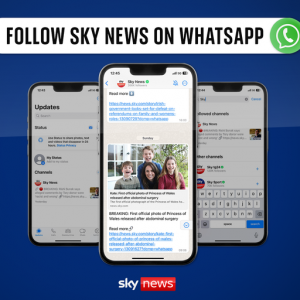National security concerns reportedly delay TikTok-U.S. deal
Rafael Henrique | Sopa Images | Lightrocket | Getty Images
Negotiations between TikTok and the U.S. government have been delayed as officials continue to worry about the potential national security issues the app could pose given its ownership by Chinese company ByteDance, The Wall Street Journal reported on Tuesday.
The government’s concerns include how TikTok could share information related to its video recommendation algorithm and how much trust the government would ultimately need to put in TikTok to follow through on the deal’s terms, according to the Journal. The government has yet to come back with TikTok with new requests on how to address the concerns, the Journal reported based on unnamed sources. TikTok confirmed it has not received an update from the government about any unresolved concerns.
“While we can’t comment on the specifics of those confidential discussions, we are confident that we are on a path to fully satisfy all reasonable U.S. national security concerns and have already made significant strides toward implementing those solutions,” a TikTok spokesperson said in a statement.
The two sides had reached broad agreements about storing U.S. user data on Oracle servers in the U.S., the Journal reported, moving it from TikTok data centers in Virginia and Singapore. Oracle would also be in charge of overseeing protocols about which employees within TikTok could access U.S. user data, according to the report.
U.S. officials and lawmakers have been vocal about their security concerns with TikTok. Republicans in the House are widely expected to use control of the chamber next year to zero in on fears about the app’s ties to China.
Federal Bureau of Investigation Director Christopher Wray told lawmakers last month that he is “extremely concerned” about TikTok’s U.S. operations. He said the FBI’s feedback “would be taken into account in any agreements made to address the issue.”
In notes on Wednesday, analysts predicted that Meta, Google’s YouTube and Snap would stand to gain from a TikTok ban in the U.S.
Bank of America analysts said a TikTok ban is a “possible but not most likely scenario,” adding that a “negotiated sale to a US tech or media company could be more likely if a ban was on the horizon, and a sale could accelerate advertiser interest.”
“In a ban scenario, we would view Snap as the biggest sentiment beneficiary, followed by Meta,” the analysts wrote.
Cowen analysts wrote Wednesday that Meta’s Reels, short-form videos similar to those on TikTok, “would be the biggest beneficiary” of a TikTok ban, followed by YouTube’s Shorts.
“If TikTok were banned, 26% of its users would reallocate their time spent to IG Reels, 21% to YouTube
Shorts & 3% to SNAP’s Spotlight,” Cowen estimated based on its November survey.
Still, Cowen analysts agreed a full ban is not the most likely scenario.
“We continue to believe TikTok will survive in the US,” Cowen policy analyst Paul Gallant wrote. “But we think it’s now a very close call, and we maintain our 40% chance of a ban in 2023.”
“The question now is whether CFIUS is pausing to determine what else is needed for a strong settlement, so it can be successfully sold to Capitol Hill,” he added. “Or whether CFIUS is reassessing a monitoring agreement altogether in favor of mandating that Bytedance divest TikTok,” referring to the Treasury Department’s Committee on Foreign Investment in the U.S., which is leading negotiations.
The Treasury Department did not immediately respond to a request for comment.
Read the full report at The Wall Street Journal.
CNBC’s Michael Bloom contributed to this report.

